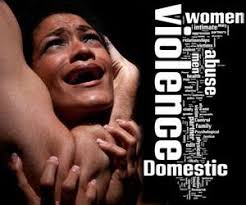Last year, prompted by a woman in distress seeking to escape an abusive and potentially dangerous domestic situation, I did a blog post entitled: “Domestic Abuse in Jamaica: Where are the safe houses for women seeking refuge?” You see, I was trying to identify where she could get safe harbour immediately. I came up empty. Since then, the government has announced plans to establish 3 national shelters and I’ve received confirmation that the Woman Inc crisis center is up and running. However, another recent encounter with a woman seeking to escape and resolve a violent domestic situation caused me to revisit the issue of resources and advice available to women in similar situations.
Continue reading Advice for Securing Justice in a Domestic Abuse situation in JamaicaTag: police
The Broken Windows Theory & Policing in Jamaica: “To protect, Serve and Reassure…those who matter”
Simply Black and White… is it really?
This video by a white looking former beauty contestant Jamaican woman (Rosina Casserly) caused a bit of stir recently. In the video, she spoke about crime, the Chick V epidemic, and aspects of Jamaica other than balmy days sipping Appleton while waves lap around our feet… That she did this in a forum open to the world, and that she did it jokingly caused offence to many.
Anthony Bourdain’s “Part’s Unknown” CNN feature focusing on Jamaica (first aired on CNN November 16) also caused some reaction. In true Bourdain style, his story sought to capture the essence of the destination by delving into more than food and drink. As he always does, Bourdain tried to present the viewer with more than one angle, seeking to create a context for a more rounded understanding. A Jamaica tourist board feature it was not. Some people loved it while other declared embarrassment.
There’s a very strong sentiment that we as Jamaican’s ought not to “air dirty linen in public”. We once had a US Ambassador stationed here who dared to level an observation, ok, a criticism then, that as a country we tended to laud announcements rather than accomplishments. What an ant’s nest he stirred up with that statement! Not surprisingly to me, the discussion about the ambassador’s statement had more to do with who made the statement and where the statement was made, with almost zero thought given to the actual veracity of the statement. In Jamaica, form trumps principle every single time. We are extremely hung up on appearances and so called protocols without spending half of that attention and energy on the actual issue. People: we are too destitute and too deeply mired in the mess created over the years by our leaders to waste time on form. I insist.
But let’s come back to the video mentioned at the top of this post shall we. Kei Miller, brilliant Jamaican writer (his ability to articulate thought always leaves me satisfied and smiling…check out his blog) posted a comment critical of the video which eared him the ire of some other on-line commentators and the ire of the video star herself. Kei’s criticsm of the video was immediately slotted into the category of “he’s critical because the girl is a white girl and he’s black.” In his usual clear, thoughtful, introspective manner, Kei provided context for what ensued. I read and reread his blog post on the matter. Kei boldy goes where many tiptoe around and pretend as if it really doesn’t exist. But lemme ask you this: had that identical monologue done by Casserly been done by Ity and Fancy Cat, would it have been assessed in the same way? Would it have evoked the same reactions? Divides based on skin colour exist in Jamaica. We make judgments in this country based on skin colour, Yes, yes, yes…we proudly declare in our national motto: “Out of many, one people”. Right.
THE LONG LINE IN THE LADIES ROOM AT SOVEREIGN PALACE CINEPLEX
At intermission, I rushed with my young charge to the ladies room. Apparently, every other female in the house was on the same mission. The line was long. I took my place at the back of the line and prayed to God that it would move quickly. Two white looking girls, about 14 years of age, sauntered in chatting merrily to themselves. They swung their long, straight hair up into ponytails as they walked in and I watched in utter amazement as they breezed past us in the long line and simply took their place at the head of the line. Now the original head of said line was a woman, black skin, about 40 years of age. By this time, I am totally focused on what is unfolding before me. I ignored my young charge as I gave full attention to this scene. Black Woman looked annoyed, rolled her eyes and shifted her weight to her other foot as she folded her arms tightly across her chest. No one said anything, not even Black Woman. In a split second I decided that I was giving her exactly 20 seconds to take action, and if she failed to do so, I was going to step in. …19, 20, time up! I commanded my charge to stay put, and I took 3 strides to the top of the line and leaned in towards the girls. In a loud, clear, voice, calm though, I declared to them: “This is a line. This is where it starts, look at where it ends, You join the line down there.” They looked around in confusion, the confusion changed to obvious embarrassment, and they said sorry and moved to the back of the line. I went back to my own place in the line, not daring to look at Black Woman lest she see the disappointment I felt. In her. I had questions… Why didn’t she stand up for herself? Why did those white looking girls not see the line? I really don’t think they were malicious… they were simply behaving as they always did in their context of relative privilege.
“DRIVER: WE WANT A SEARCH”
Back in the early ’90’s, for a while, I used to take public transport between Kingston and Mandeville. I was engaged in on-farm research near Spur Tree and the project didn’t as yet have an assigned vehicle. It was not uncommon for the mini and coaster buses that I used to take to be stopped by police at random at various points along the route. All passengers had to disembark so the police could search for weapons and ganja. 9 out of 10 times that we were stopped for this search, the police would say to me: “Browning: you can stay inna di bus. Is aright. Si dung.” The special treatment afforded me started from the bus park, where the loader man or driver would signal to me: “Browning, come si dung inna di front.”
“HIM IS A NICE BROWN MAN. HIM CAN BE DI FOREMAN”
I knew someone who was summoned to jury duty years ago. She told me that she watched on in amazement at how the foreman was selected. See the selection criteria there… (sub-heading above). And no one objected. Including the person I knew. She wasn’t interested in the position and saw no point in introducing contention.
“WHITE WOMAN CAN’T MANAGE BLACK WOMAN HAIR”
The last time I combed my daughter’s hair was when she was in grade 4. She has a huge and gorgeous head of hair. Washing and combing it demanded prayer and fasting and push ups and pull ups…for the two of us. On this particular occasion, as her tresses got the better of me, I sighed and heaved and sucked my teeth. My normally quiet, reserved 9 year old angel said quietly, but clearly: “White woman can’t manage black woman hair.” I was stunned into silence. I was hurt that my baby saw a difference between us. I was puzzled. We both struggled through what would be our last hair episode (that’s why God invented hairdressers) and a few days later, after I figured I had processed it sufficiently, we spoke. I told her that shades of blackness was an artificial construct devised to divide the African slave population. That we as black people bought into it as we failed to recognise the glory and beauty of our black selves and instead looked at whiteness as an aspirational ideal. Mi tell har fi stop it.
 |
| Me and Rachie |
 |
| Her Glorious Mane! |
If you live in this country, then you have at least ten more stories that you can place right alongside only the 3 stories that I have chosen to share. I haven’t spoken bout how I was called coolie girl or white girl at my primary school. I haven’t shared how I was trying to make a point in a group discussion during high school and was laughed out of the room when I started with: “We as black people…” My parents, especially my mother, had a very strong sense of who they were, and passed that on to all six of us.
 |
| My Darling Antecedents |
I remember being puzzled when an old white man who was also attending the rose conference I was attending in Detroit politely asked me: “What are you?” My answer that I was Jamaican added to his confusion.
“But you aren’t white, are you? Are you black?”
“Yes I am. I come from the Caribbean where there was a whole lot of raping of black women by white men, and intermarriage between Indians, Chinese, Blacks and Whites”. Thus ended that convo.
We like to sing “Emancipate yourself from mental slavery” and we are taught to recite: “Out of Many One People”. I don’t think we get it. We still draw lines and make judgments based on colour (and the colour and class relationship can be thrown into the mix too) in Jamaica.
I have never lived anywhere other than the Caribbean (Jamaica, Trinidad & Tobago and Grenada). This is merely my experience, in the skin that I was born with. Other persons, born in a different skin, have other experiences that though different from mine, illuminate the very real colour divide in Jamaica. H insists that as a nation, as a people, we still haven’t recovered from slavery. He may be right.
Principle of Legitimacy and Crime Fighting in Jamaica
PUBLISHED IN THE GLEANER AUG 17 2014
http://jamaica-gleaner.com/gleaner/20140817/cleisure/cleisure2.html

